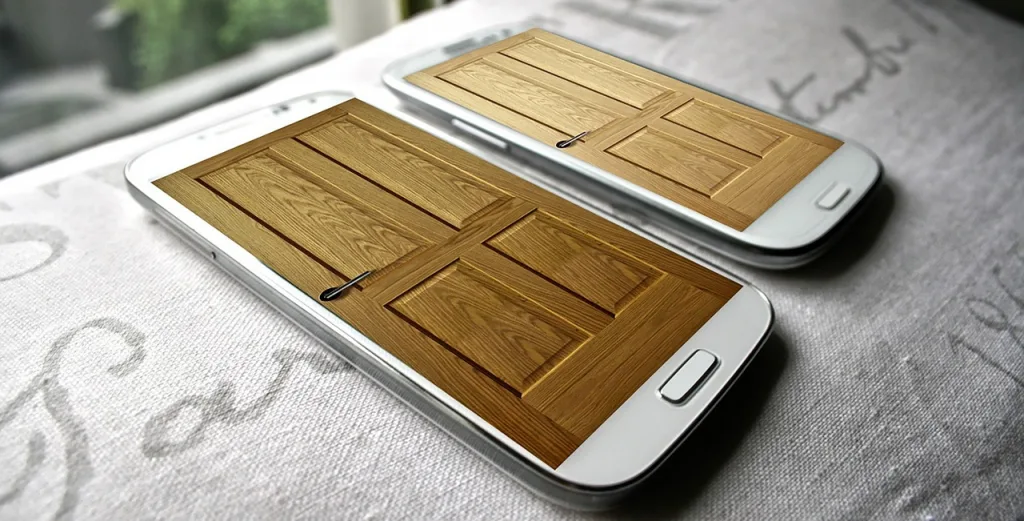Sidhak Verma
Myself Sidhak I am a student and a content writer. I share my ideas on social media and finding ways of earning money online on the internet.
When it comes to cutting-edge technology, LG and Samsung are two of the first names that come to mind. Both of these...

Image Credits: pixabay
When it comes to cutting-edge technology, LG and Samsung are two of the first names that come to mind. Both of these companies are known for developing new items ranging from televisions and smartphones to home appliances and display technology. However, each has unique approaches to design, performance, and features. Let’s compare LG vs Samsung in a variety of categories.
Both LG and Samsung have made considerable developments in television display technology, offering a variety of models that promise high-quality images, smart functions, and immersive experiences.
LG is largely the market leader in OLED (Organic Light Emitting Diode) television technology. OLED televisions are known for their high contrast ratios, deep blacks, and brilliant colours, which provide an unparalleled viewing experience. LG’s industry-leading OLED collection has earned them a reputation for pushing the limits of display technology. LG’s OLED televisions are slimmer, more energy efficient, and have wider viewing angles. Furthermore, LG’s use of Dolby Vision and Atmos improves the premium viewing experience.
On the other hand, Samsung has established itself as the leader in QLED (Quantum Dot LED) technology. QLED televisions provide bright, vibrant images with excellent colour accuracy. Samsung’s QLED displays have been acclaimed for their excellent brightness, making them perfect for settings with plenty of natural light. Although QLED is not as effective as OLED at producing perfect blacks, the brightness and endurance of QLEDs provide Samsung an advantage in some cases. Samsung also incorporates elements such as the Tizen operating system and Smart Hub to provide a seamless smart TV experience.
Both LG and Samsung have established their mark in the smartphone industry, with each offering a diverse selection of handsets, from low-cost options to flagship models.
While LG smartphones have often been underestimated in comparison to Samsung’s offerings, they have offered some very creative features throughout the years. LG was among the first to embrace the modular phone concept with the LG G5, which allows users to add attachments such as a camera grip or a high-fidelity audio module. LG developed the dual-camera arrangement with the LG G5 and, later, the LG V series. Despite these advancements, LG has struggled to maintain the same market share as its competitors, and the company declared in 2021 that it would leave the smartphone business entirely.
Samsung, on the other hand, has continuously been at the cutting edge of smartphone innovation. The company’s Galaxy S and Galaxy Note series are renowned for their strong CPUs, high-quality screens, and exceptional cameras. Samsung also launched foldable phones with its Galaxy Z series, which added a new degree of versatility to the smartphone market. Samsung’s constant software updates, as well as the integration of Samsung One UI, improve the user experience even more.
When it comes to home appliances, LG and Samsung have built a loyal following for their energy-efficient, fashionable, and highly advanced offerings.
LG has a reputation for producing high-efficiency home appliances, particularly in the washer-dryer and refrigerator categories. Their smart home gadgets, such as the LG ThinQ platform, enable consumers to control and monitor their devices remotely. LG also promotes energy-saving features such as AI-driven washing cycles that adjust performance based on the laundry load. LG refrigerators are also noted for their unique designs, including the InstaView and Door-in-Door features.
Samsung, too, offers a diverse variety of smart home products with a focus on connectivity. Samsung’s Family Hub refrigerators, for example, let you organise your shopping, stream music, and even leave notes for family members. Samsung’s SmartThings platform serves as a central centre for all of its smart home gadgets, allowing customers to easily control everything from lights to security cameras. Samsung also leads with its smart ovens, which can be controlled by voice via Bixby, Alexa, or Google Assistant.
LG has been pushing the boundaries with its flexible OLED panels, which are used in everything from televisions to smartphones. The company’s concentration on future-ready display technologies, such as transparent OLEDs and rollable screens, has distinguished it in the display industry. These advancements have the potential to transform not only televisions but also wearable devices and automobile applications.
Samsung is also making headlines with its advances in display technology. One of the company’s most interesting advancements is its MicroLED technology, which promises to provide even higher picture quality than OLED while eliminating the risk of burn-in. Samsung’s efforts in foldable displays have also reinvented what a smartphone can be, with the Galaxy Z Fold and Z Flip series getting great praise for their innovative designs.
LG products are slightly more expensive than competitors, particularly OLED televisions, due to the premium nature of OLED technology. Samsung, although still delivering high-end products, frequently offers a wider price range, making it easier for customers to choose something within their budget. Both brands provide good warranty schemes, but Samsung’s wider reach often results in better customer service in specific regions.
When comparing LG vs Samsung, the choice ultimately depends on your priorities:
Both companies are tech giants, continuously inventing and pushing the boundaries of what is possible. Whether you choose LG vs Samsung is determined by your unique needs and preferences, but both will provide an excellent experience.